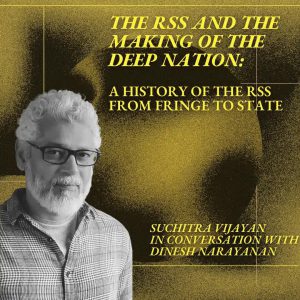
Hindutva and the falsifications of Indian history, a talk by Prof. Irfan Habib

Irfan Habib, Professor Emeritus at the Aligarh Muslim University, is the author of The Agrarian System of Mughal India, 1556-1707, An Atlas of the Mughal Empire, Essays in Indian History: Towards a Marxist Perception Medieval India: The Study of a Civilization, Economic History of Medieval India, 1200-1500 and Atlas of Ancient Indian History. He has co-edited The Cambridge Economic History of India, Vol.I, UNESCO’s History of Humanity, Vols.4 and 5, and UNESCO’s History of Central Asia, Vol.5. He is the General Editor of the People’s History of India, and has authored seven volumes and co-authored two volumes in the series.
SUPPORT US
We like bringing the stories that don’t get told to you. For that, we need your support. However small, we would appreciate it.
Related Posts
- Conversations
Hindutva and the falsifications of Indian history, a talk by Prof. Irfan Habib






